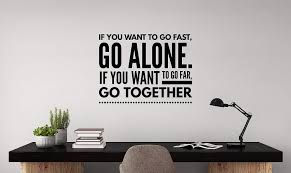Collective Wisdom: Three Lessons on, and Ways of Coping with, Illness, Dying, and Grieving
- Anna Byrne

- Nov 28, 2023
- 3 min read
It’s been a full month here. In the last few years, qathet Art has hosted a Memento Mori Festival (Latin for “Remember you must die”) in November. Memento Mori is a reminder that we can engage with our death throughout our entire lives, and that doing so can actually help us to live better. This month, events have included a Día de Muertos Community Ofrenda, an Advance Care Planning Workshop, and a night of storytelling about final disposition.
For Memento Mori, Jules Adam, Laurie Norman, and I presented a screening of the film Tender, an Australian documentary about a community group in the process of starting a nonprofit funeral home when one of their own is diagnosed with a terminal illness. The community group went on to successfully start a nonprofit funeral home and Jennifer Brisco-Hough, the CEO of Tender Funerals, joined us virtually at the end of the film to answer questions. It was incredibly moving. Our community casket, which is available free of charge for transportation to the cemetery, was also on display.
Laurie, Jules, and I also presented a workshop at the Hospice Education Days conference hosted by the BC Hospice-Palliative Care Association and the Vancouver Island Federation of Hospices. The workshop shared our story of supporting our friend Mary Morgan while she was dying. At both of these events, people were interested in learning how community-supported deathcare can help all of us to better care for those who are aging, ill, dying, and grieving in our lives.
Finally, I also hosted a three-week book circle that used Seven Year Summer as a starting point to talk about the common experience of facing serious illness. I am grateful to the 10 participants who so gently held my story and so quickly entrusted their own stories to the group. Our introductions soon gave way to sharing what it is like to deal with a health crisis or the loss of a significant other, and how we can begin to cope.
One of the guidelines of the book circle was: No one knows everything. Together, we know a lot. Over the three weeks, the group spoke about many topics, and by sharing our experiences, we developed a collective wisdom. Here are a few gold nuggets...
3 Lessons on Illness, Dying, and Grieving…
1. Human bodies are animal bodies, subject to the same laws of biology as other species. Because of our ability to manipulate our environment, we often forget this basic fact. As we age, become ill, or lose someone we love, we can think these are unfair or worse, but decline and death is built into the fabric of the cosmos.
2. When we die, we won’t even be able to keep the thing that has been closest to us for all of our lives—our body. This realization can help us to keep our relationship to our possessions and money in a more balanced place. We won’t be taking any of it with us.
3. Death ends a life, not a relationship. Many cultures believe that our loved ones who have died are still present and active in our lives. We can stay connected to them by recalling memories, displaying photos, and telling stories of them. At meals or special holidays, we can bring them into our celebrations by remembering them by name or by making one of their favourite dishes.
3 Ways to Cope with Illness, Dying, and Grieving…
1. Delegate. After being fiercely independent her whole life, one participant spoke of delegating tasks to others during a difficult time. The tasks were ones she didn’t need to do herself, and having someone else do them freed her to concentrate on the truly important things that only she could take care of.
2. Call on your ancestors. Before and important event, meeting, or moment, one participant shared that she asks her loved ones who have died for help. She asks to borrow one of their characteristics to meet the task ahead. Steadfastness, resourcefulness, joy, hospitality, openheartedness—all of the resources and qualities of our ancestors are in our lineage and available to help us.
3. Exercise. Long-distance running and hiking in the woods were two ways our group coped with stress, loss, and change. “You can work out a lot on the trail,” said one person. Exercise decreases stress, builds the immune system, and gives space and time for emotional release and mental reflection.
There were so many gifts this month, but the most important lesson I learned is that by sharing our lives with others, our capacity to bear the realities of life and death expands. It is together that we can more fully meet the challenges and opportunities of living and dying.





















Comments